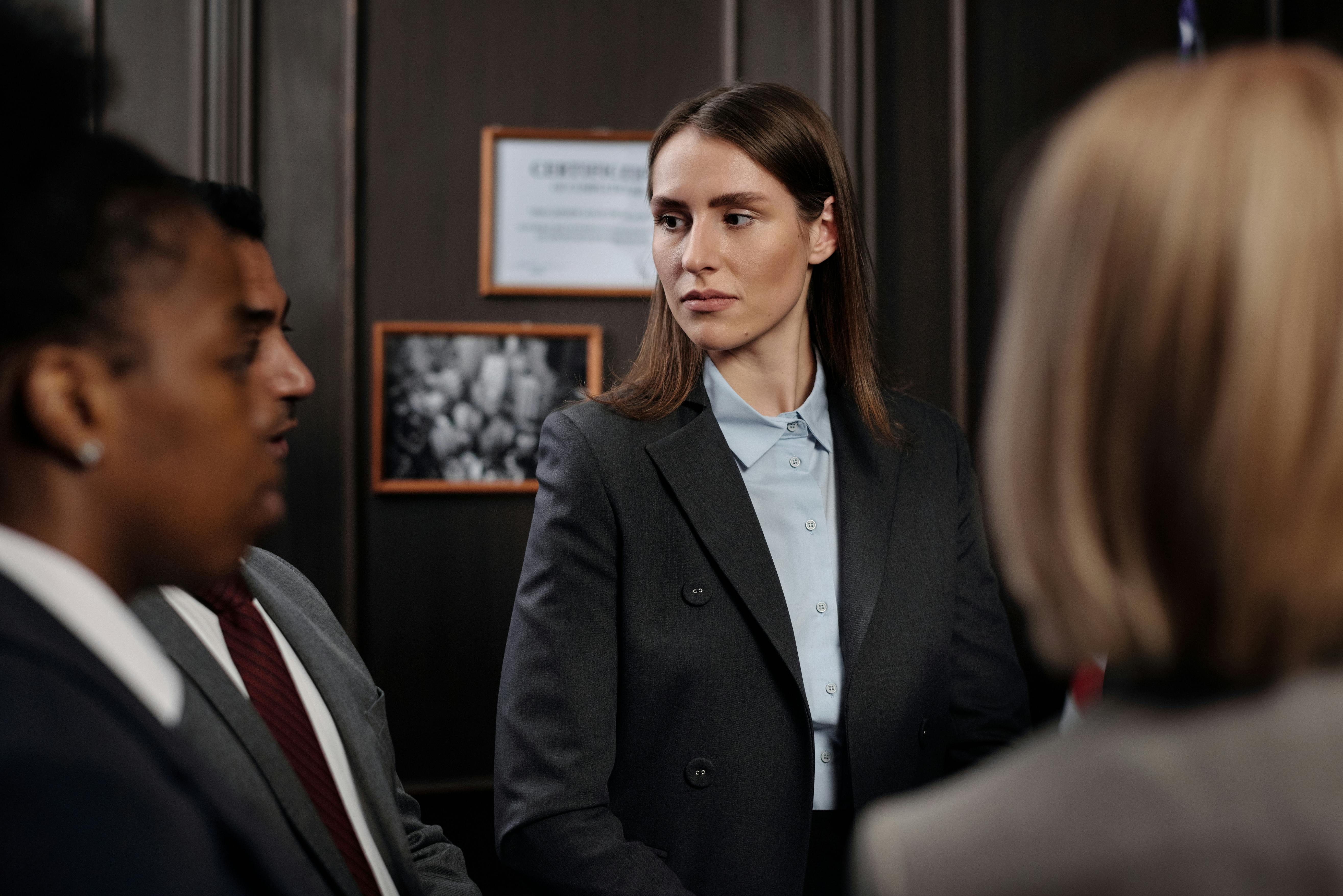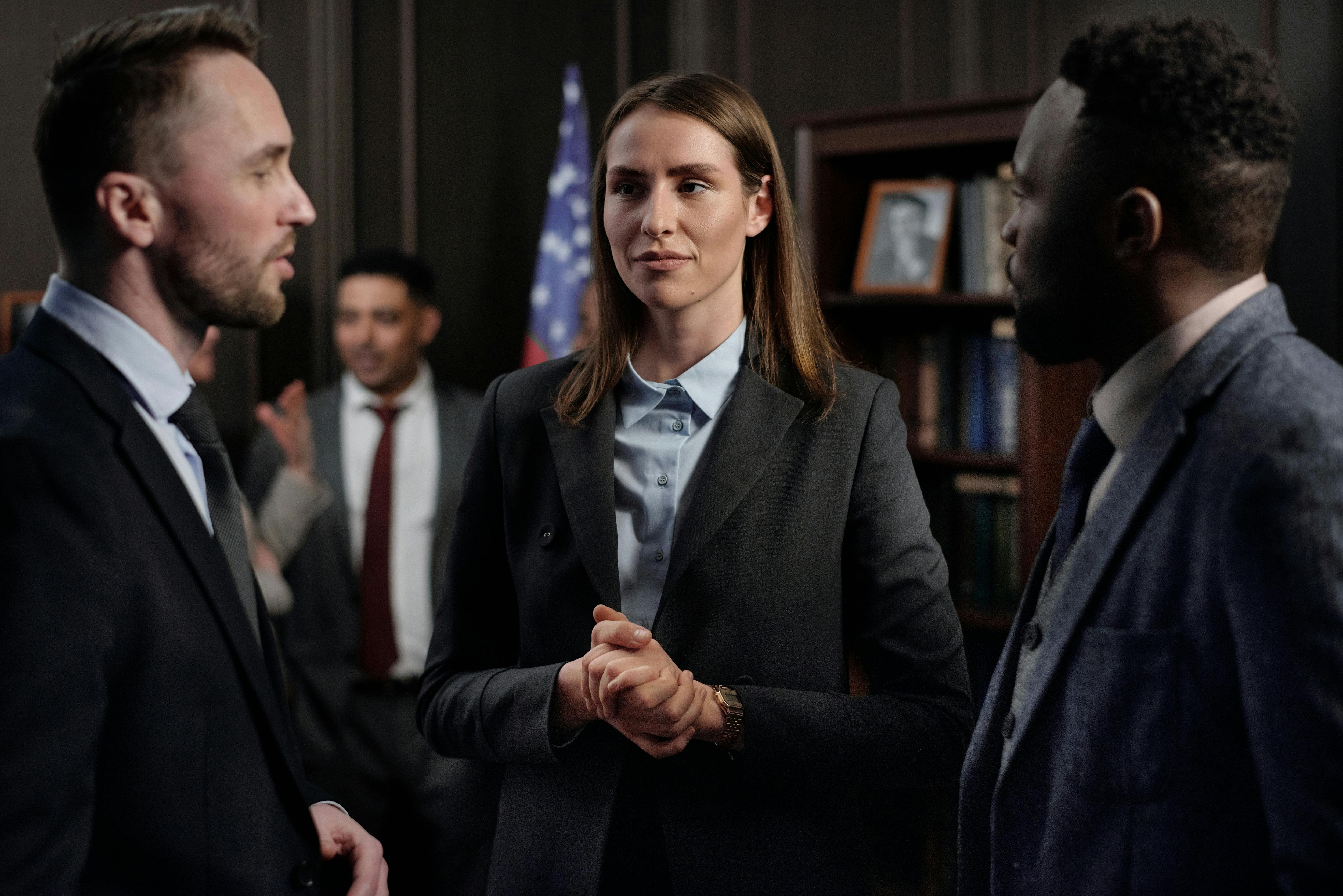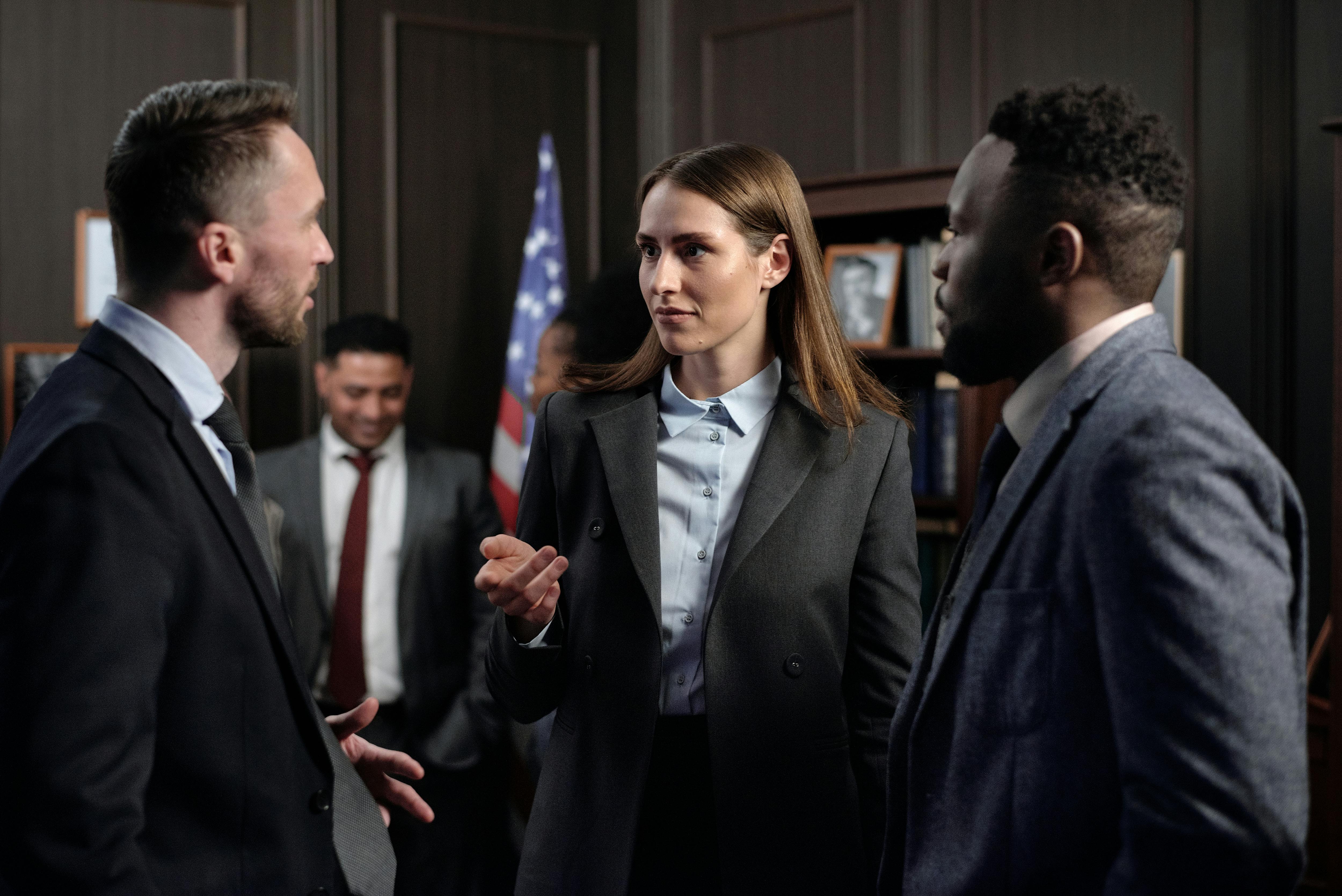Attorneys in 2025: The Evolution of Legal Power and Human Advocacy
In 2025, the word “Attorney” no longer means just a person in a suit holding legal papers. It means strategist, technologist, negotiator, and — above all — a voice that balances the power between systems and people.
The modern attorney lives in a world where artificial intelligence drafts contracts, blockchain notarizes signatures, and clients expect answers instantly. But amid all that automation, one truth stands firm: human advocacy still defines justice.

Gone are the days when success in law meant knowing every statute by heart. Now, success depends on adaptability — on how fast an attorney can merge law, data, and ethics into one powerful argument.
Let’s explore how the legal profession has evolved — from dusty bookshelves to data clouds, from rigid suits to virtual screens, from courtroom battles to algorithmic justice.
---Part 2 — From Courtrooms to Clouds: The Digital Transformation of Attorneys
Before 2020, lawyers spent most of their days drafting, reviewing, and filing paperwork. In 2025, much of that work is handled by AI assistants and legal tech platforms.
What changed isn’t just the tools — it’s the role. Attorneys today are digital architects of justice. They must understand cybersecurity, data protection, and online arbitration as much as they understand tort law or contracts.

Top Trends Transforming Attorneys’ Work in 2025:
- 📊 AI Legal Drafting: Contracts written and reviewed by AI tools like Harvey and LexAI, saving 60% of attorneys’ time.
- 🧾 Virtual Law Firms: Lawyers working fully online with international clients using encrypted communication systems.
- 🧠 Predictive Analytics: Using data to predict case outcomes and guide negotiation strategies.
- 🔒 Cybersecurity Law: A new specialization for attorneys focusing on digital fraud, identity theft, and privacy breaches.
And yet — despite the tech — human intuition remains the final verdict-maker. Clients don’t hire attorneys for their gadgets; they hire them for their judgment, empathy, and courage to stand firm when systems fail.

Part 3 — The Rise of Specialist Attorneys in a Complex World
In 2025, the legal world is no longer divided into “civil” and “criminal” — it’s a web of hyper-specialized niches. From cybersecurity attorneys to AI compliance lawyers, specialization has become the backbone of modern advocacy.

Top 5 Attorney Specializations Dominating 2025:
- 🔐 Cyber Law Attorneys: Fighting digital crimes, privacy violations, and AI data abuse.
- 🌿 Environmental Law Experts: Ensuring companies comply with green energy and sustainability policies.
- 💰 Financial Attorneys: Handling crypto regulations, fintech contracts, and cross-border investments.
- 🏥 Medical Malpractice Lawyers: Protecting patients against AI-driven misdiagnoses and telemedicine negligence.
- 🤖 AI Ethics Lawyers: Regulating algorithms that affect employment, credit, and even justice itself.
Clients today don’t just want a “lawyer” — they want someone who speaks the language of their world. That’s why tech startups hire blockchain attorneys, hospitals hire AI ethics counsel, and governments rely on data sovereignty experts.

💬 Quote from a Leading Legal Futurist: “Tomorrow’s best lawyers won’t know every law — they’ll know how every law evolves.”
This mindset shift has created an entirely new class of legal thinkers — hybrid professionals who combine law, psychology, data, and diplomacy into one craft of persuasion.
---Part 4 — Emotional Intelligence: The Secret Weapon of Great Lawyers
In an age dominated by analytics and algorithms, the one skill machines can’t replicate is emotional intelligence (EQ). For attorneys, it’s the difference between arguing and truly connecting — between winning a case and transforming a life.

💡 Why Emotional Intelligence Matters in Law:
- 🧠 Self-Awareness: Attorneys who understand their emotional triggers argue more clearly and confidently.
- 💬 Empathy: Clients need to feel heard — not processed. The best lawyers make space for human pain.
- 🧍 Client Trust: Cases are won not only in courts but in conversations. Clients follow advocates they emotionally believe in.
- 🎯 Negotiation Power: The emotionally intelligent attorney reads body language and tone — anticipating moves before they happen.

💬 Insight: A Harvard Law Review study in 2025 revealed that attorneys rated high in emotional intelligence win 38% more negotiations than peers who rely solely on logic and precedent.
So yes — technology shapes the system, but emotion moves the verdict. Justice may begin with law, but it ends with understanding.

Part 5 — The Business of Law: Branding, Strategy, and Global Reach
In 2025, attorneys are not just legal experts — they are brands, entrepreneurs, and storytellers. The modern client doesn’t search for “lawyer near me.” They search for trust, clarity, and presence.

💼 The Modern Attorney’s Business Model:
- 🌍 Global Outreach: Virtual consultations allow lawyers to represent clients from anywhere in the world.
- 📱 Social Presence: Attorneys now use LinkedIn, podcasts, and YouTube to educate and connect.
- 💬 Content Marketing: Blogging and webinars position lawyers as authorities in their niche.
- 🤝 Client Relationship Systems: CRM tools track every lead, meeting, and referral to maximize efficiency.
The most successful law firms of 2025 operate more like tech startups — agile, data-driven, and focused on client experience. Billing transparency, subscription legal services, and online reviews have made competition fierce — but also fair.

🔍 Quick Insight: A 2025 ABA report found that firms with strong online branding generated 54% more leads than those relying solely on traditional advertising.
---Part 6 — The Ethical Dilemma: Can Attorneys Stay Human in a Digital Age?
Every leap in technology brings a new shadow — ethical dilemmas that test the integrity of even the most experienced lawyers.
Attorneys now navigate cases involving AI-generated evidence, digital privacy violations, and algorithmic bias. The question is no longer “What’s legal?” but “What’s right?”

💡 Common Ethical Challenges in 2025:
- ⚖️ AI Conflicts: When algorithms decide legal outcomes, who’s responsible for the bias?
- 📡 Data Ownership: Can a lawyer ethically use client data stored on AI platforms?
- 🤖 Automation Boundaries: At what point does AI assistance become unauthorized legal practice?
- 💬 Transparency: Clients now demand to know how digital tools affect their cases — honesty is mandatory.
Ethics has returned to center stage — not as a chapter in law school, but as the compass of modern advocacy. The most respected attorneys in 2025 aren’t just those who win; they are those who refuse to compromise human values for digital speed.

In this new era, the true mark of greatness is not mastery of code or data — but the courage to say “no” when progress threatens principle.
Part 7 — AI in Law: Partner, Not Replacement
When artificial intelligence entered the courtroom, many feared the end of human advocacy. But 2025 proved something different — AI didn’t replace attorneys; it refined them.

💡 Here’s how AI has become a trusted partner in law:
- 📚 Legal Research in Seconds: AI scans decades of case law and delivers precedents in seconds, saving hours of human effort.
- ⚖️ Predictive Analysis: Machine learning models forecast case outcomes with 85–90% accuracy based on past rulings.
- 🕵️ Due Diligence: AI reviews thousands of contracts to flag inconsistencies and hidden clauses.
- 📊 Data-Driven Arguments: Attorneys now support legal reasoning with visual analytics — graphs, heat maps, and patterns of judgment.
However, there’s a truth no algorithm can challenge: ⚖️ Law is not just logic — it’s emotion, ethics, and empathy. AI may process evidence, but it can’t feel the heartbeat of justice. That’s why the human attorney remains irreplaceable — not despite technology, but because of it.
🗣️ Case Study — The Human Touch Still Wins: In a 2025 New York trial, two AI-assisted firms competed in a corporate fraud case. The firm that ultimately won wasn’t the one with the better AI — it was the one whose attorney connected with the jury through storytelling and empathy. That verdict redefined the balance between data and humanity.
---Part 8 — The Attorney-Client Bond: Building Trust in a Transparent Age
Once upon a time, clients met lawyers in tall glass offices filled with law books. Now, they meet them on Zoom, WhatsApp, or even via AI chatbots that pre-screen their cases. The medium changed — but the heart of law stayed the same: trust.

💬 Top Ways Attorneys Build Unshakable Client Trust in 2025:
- 🔍 Total Transparency: Clients can now track the progress of their cases in real time through client dashboards.
- 💬 Humanized Communication: Emails replaced with voice notes and short video updates — a personal touch that builds loyalty.
- 🧾 Upfront Pricing: Flat-fee legal packages have replaced billable-hour confusion.
- 🌐 Cross-Border Representation: Virtual law firms allow clients to work with top attorneys globally — without travel or barriers.

💡 Client Psychology in 2025: Modern clients are smarter and more skeptical. They read reviews, check credentials, and expect empathy. A study by Clio in 2025 showed that 73% of clients choose attorneys based on responsiveness and emotional connection — not just credentials.
That means the attorney of tomorrow must be more than a legal mind. They must be a listener, a guide, and a partner in their client’s journey toward justice.

Part 9 — Redefining Justice: The Future Attorney’s Code
Justice in 2025 isn’t carved in marble — it’s written in code, ethics, and compassion. As laws evolve faster than ever, attorneys have become the interpreters of human morality in a digital age.

💬 The New Attorney’s Code (2025 Edition):
- ⚖️ Serve Humanity, Not the Algorithm: Remember that behind every line of code lies a beating heart seeking fairness.
- 📜 Truth Above Strategy: The modern lawyer values integrity over theatrics — truth wins longer than manipulation ever will.
- 🤝 Clients Are Partners, Not Cases: Every client brings a story; every story deserves respect.
- 💡 Learn. Unlearn. Relearn: Law changes daily — the great attorney stays curious, adaptable, and humble.
- 🌍 Be a Global Citizen: Laws may be national, but justice is universal.
This new code isn’t written in textbooks. It’s written in the quiet moments between decisions — when an attorney chooses empathy over ego, or transparency over convenience.

🌟 Case Reflection: A 2025 California firm replaced 70% of its traditional marketing with public education campaigns about legal literacy. Result? They tripled their client base — proving that doing good is the best kind of growth.
That’s the soul of modern law — where success and service walk hand in hand.
---Part 10 — Legacy, Leadership, and the Human Future of Law
As we step into 2030, the image of the attorney will evolve once more — not into a robot, but into a leader of conscience. Lawyers will no longer be seen merely as “defenders” but as architects of social balance.
🔹 The Future Vision:
- 👩🏫 Attorneys as Educators: Guiding communities about rights, privacy, and digital citizenship.
- 🧠 Law and AI Partnerships: Ensuring algorithms respect constitutional ethics.
- 💬 Community Mediation: Turning conflicts into collaborations through modern mediation models.
- ⚙️ Ethical Innovation: Advising tech companies to build fairer systems, not just faster ones.

💬 Final Thought: The world doesn’t just need more lawyers — it needs wiser ones. Attorneys who see law not as a tool to win cases, but as a bridge to heal divisions.
So if you’re reading this as a future attorney, remember: Your greatest brief will not be written on paper — it will be written on the lives you defend, the systems you reform, and the justice you dare to imagine.

⚡ CTA – Call to Action:
If you’re an aspiring lawyer or firm ready to redefine justice, stay ahead by mastering both technology and empathy.
Explore our latest articles on Law & Ethics 2025 for more insights and inspiration.
